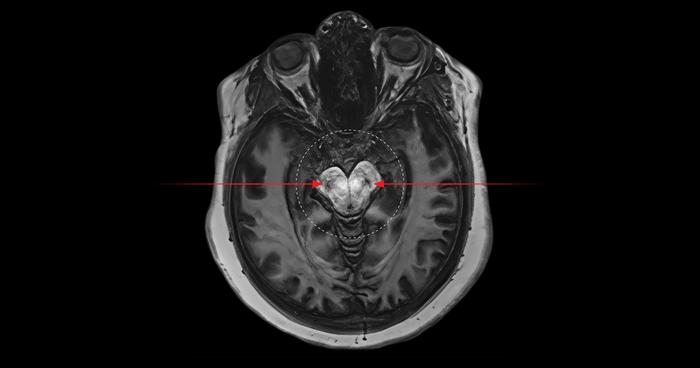Researchers are beginning to untangle the complex relationship between cannabis use and its effects on the brain, particularly regarding psychosis. A study published in JAMA Psychiatry reveals that individuals suffering from cannabis use disorder may show significant alterations in brain chemistry that directly correlate with an uptick in psychotic symptoms. This groundbreaking study was spearheaded by a team from the London Health Sciences Centre Research Institute and Western University’s Schulich School of Medicine & Dentistry in London, Ontario, and provides key insights into the dangers of prolonged cannabis consumption.
The research employs advanced imaging techniques to delve into the neurological changes among participants, uncovering an alarming trend of increased dopamine levels in certain areas of the brain among frequent cannabis users. With dopamine being a crucial neurotransmitter intricately involved in regulating mood, motivation, and cognitive processing, the implications of elevated levels within specific regions associated with psychosis warrant urgent clinical attention. Indeed, these findings serve as a critical reminder that cannabis is not without its drawbacks, particularly for those who overindulge.
As the utilization of cannabis becomes increasingly normalized—especially following its legalization in Canada—this research shines a spotlight on the escalating occurrences of psychosis documented in emergency departments nationwide, potentially linked to cannabis use. The team, led by senior author Lena Palaniyappan, urges clinicians to recognize these neurological indicators and collaborate with patients and families to mitigate the associated risks, emphasizing a proactive approach to mental health management.
An impressive aspect of the study is its use of neuromelanin-sensitive magnetic resonance imaging, a non-invasive technique that allows researchers to visualize neuromelanin within the brain. Neuromelanin is a dark pigment that accumulates over time in regions like the substantia nigra and ventral tegmental areas and has been posited as a biomarker for dopamine activity. Through this lens, the study found that the accumulation of neuromelanin in frequent cannabis users often resembled that seen in individuals a decade older, indicating potentially dangerous levels of dopamine.
The significance of dopamine cannot be understated. This neurotransmitter is pivotal for various cognitive functions. It participates in the brain’s reward system, dictating the pathways of pleasure and satisfaction. However, when imbalanced—particularly at elevated levels—it may lead to the manifestation of psychosis, including hallucinations and disruptive thought processes. Participants with cannabis use disorder displayed notably "blacker" neuromelanin spots in brain regions associated with psychosis, pointing to a biochemical connection that could have profound implications for treatment protocols and public health policies surrounding cannabis usage.
The study’s design involved 61 participants, aged 18 to 35, with a mix of individuals experiencing cannabis use disorder and those diagnosed with first-episode schizophrenia. Results indicated that regardless of a formal diagnosis, those consuming excessive cannabis exhibited heightened neurochemical changes that align with psychosis. The implications of these findings underscore the necessity of adopting a comprehensive public health dialogue regarding the risks associated with cannabis use that transcends its perceived safety and benefits.
Experts like Betsy Schaefer, who served as a co-author on the study, clarify that excess dopamine levels may predispose individuals to psychotic episodes, particularly among those already at risk. Therefore, understanding the neurochemical disruptions caused by cannabis could lead to a pivotal change in how health care practitioners address mental health concerns, especially in young adults exploring cannabis as a therapeutic outlet.
Dr. Julie Richard, a psychiatrist and lead physician at the Prevention and Early Intervention Program for Psychosis (PEPP) at LHSC, commented on the troubling trend noted in adolescents, who experience repetitive cannabis-induced psychosis. This cyclical pattern often escalates to more severe episodes, emphasizing the need for prompt educational interventions in this demographic.
Moreover, the scientific community is called upon to further illuminate the mechanisms by which cannabis influences mental health. This study serves as an initial step toward understanding the complex neurobiology associated with cannabis use, fostering a more informed public discourse. The aim is to promote awareness surrounding the potential dangers of cannabis, particularly as usage rates continue to rise following legalization.
The implications stemming from these findings stress the importance of education and preventive measures within healthcare. The study advocates for healthcare providers to equip their patients with alternative coping strategies that do not involve cannabis, thereby supporting mental wellness without risking the detrimental side effects noted in this research.
This groundbreaking research serves as a crucial addition to the canon of studies exploring cannabis’s long-term effects on mental health. With its findings poised to influence both clinical practice and public health initiatives, future studies will likely expand on these initial insights. The journey to fully understand cannabis’s neuropsychiatric implications is ongoing, and ongoing research will be fundamental in providing healthcare practitioners with the evidence necessary to guide patient counseling and treatment options effectively.
As this information reverberates through both scientific and public domains, it highlights the necessity for a nuanced and informed conversation about cannabis use that balances its therapeutic potential against the backdrop of mental health risks, particularly psychosis. The road ahead involves fostering an environment where healthcare professionals are knowledgeable about both the benefits and risks associated with cannabis, encapsulating a holistic approach to health in an era of increasing legalization and use.
Subject of Research: The neurological effects of cannabis use disorder and its link to psychosis.
Article Title: Convergence of Cannabis and Psychosis on the Dopamine System
News Publication Date: 9-Apr-2025
Web References: Study Link
References: Previous Data
Image Credits: Scan provided by Jessica Ahrens; designed by Rob Potter/Western Communications
Keywords: Cannabis, Psychosis, Dopamine System, Mental Health, Neuromelanin, Neuroimaging, Cannabinoid Research, Psychotropic Effects.




